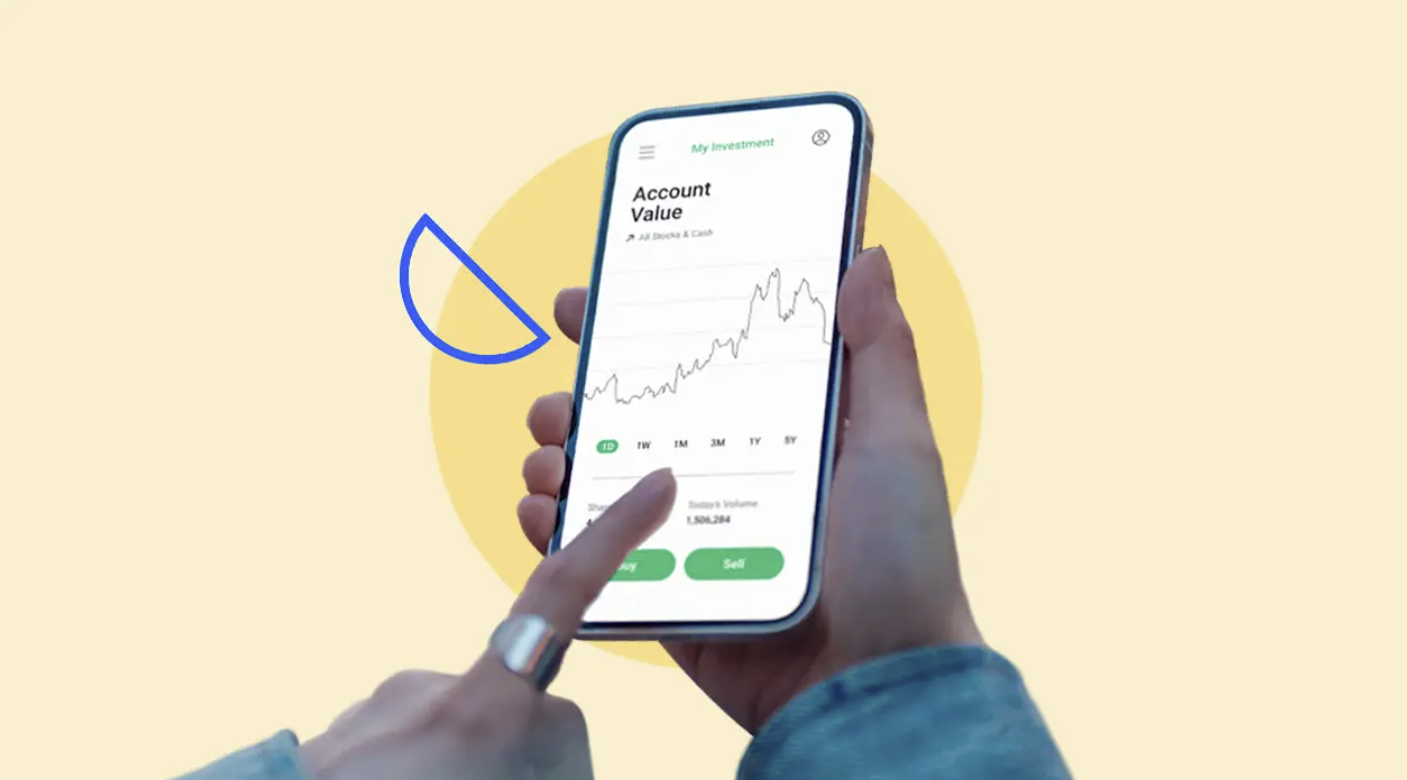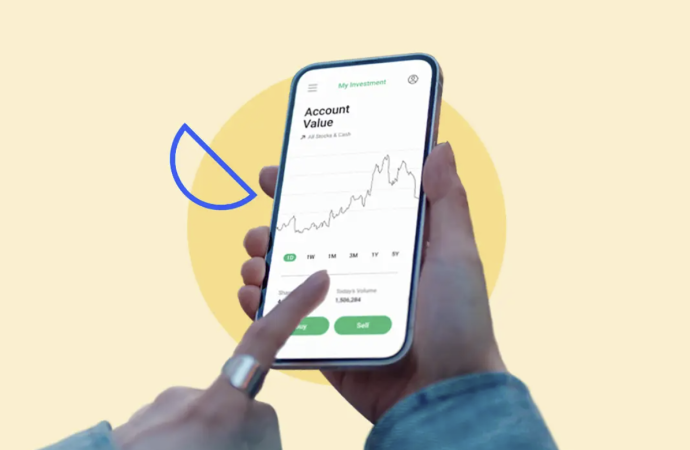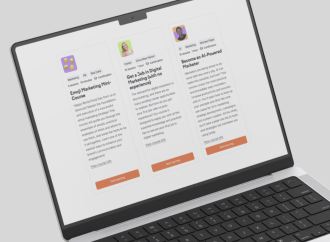Stock Trading Made Simple: The Best Apps for Every Investor Stock trading has changed a lot, especially with the ability to buy and sell stocks directly from your phone. Whether you’re just starting out with small investments or you’re an experienced trader looking to refine your strategy, the right app can make all the difference.

Stock Trading Made Simple: The Best Apps for Every Investor
Stock trading has changed a lot, especially with the ability to buy and sell stocks directly from your phone. Whether you’re just starting out with small investments or you’re an experienced trader looking to refine your strategy, the right app can make all the difference. A good app should offer features that match your goals, like an easy-to-use interface, low fees, helpful educational resources, or advanced charting tools. Let’s take a look at some of the top stock trading apps available and what to consider before choosing one.
- Robinhood
Robinhood gained popularity by offering commission-free trades for stocks, ETFs, and even options and cryptocurrencies in some areas. Its simple, mobile-first design is perfect for beginners who want an easy-to-use platform. The app removes many of the complex features typical of traditional brokerages, making it both an advantage and a limitation depending on how you trade.
What’s great: Robinhood’s no-commission model makes it affordable for frequent, smaller trades.
Easy to use: A clean interface with basic charts makes it approachable for newcomers.
Downsides: While Robinhood is easy to use, it lacks advanced charting, research tools, and order types. Some critics also worry the app simplifies financial decisions too much. Additionally, margin trading and short selling have added risks and requirements.
- Fidelity Investments
Fidelity offers a strong trading platform with excellent customer service and solid research options. While many use it for long-term investing and retirement accounts, its mobile app also provides real-time quotes, multi-leg options, and commission-free stock trades. It’s a great choice for those wanting powerful tools without losing simplicity.
What’s great: Fidelity provides in-app insights, third-party analysis, and educational videos, helping you make informed decisions.
Retirement-focused: Offers IRAs and other accounts for both beginners and advanced traders.
Downsides: Fidelity’s extensive tools can be overwhelming for newcomers, and some advanced features are easier to access on the desktop site. While most trades are commission-free, some mutual funds or international trades may have fees.
- TD Ameritrade
TD Ameritrade is a well-known brokerage with a commission-free stock trading platform, plus advanced tools for active traders. Its flagship app, along with the specialized thinkorswim app, offers comprehensive charting, technical indicators, and real-time quotes. TD Ameritrade also provides a wealth of educational resources, including free video tutorials and live events.
What’s great: thinkorswim offers advanced charting, drawing tools, and backtesting capabilities.
Excellent support: Webinars, phone support, and local branches make it easy to get help at any experience level.
Downsides: New traders may find all the features overwhelming. The thinkorswim platform can be intimidating due to its complex charts and order types. Some advanced trades or products may also incur fees.
- ETRADE
ETRADE is a pioneer in online trading and now offers $0 commissions on U.S.-listed stocks and ETFs. Its mobile app is perfect for everyday trades, while its “Power ETRADE” app caters to active traders with advanced tools like options chain visualization and risk analysis. This flexibility makes E*TRADE suitable for both casual investors and more serious traders.
What’s great: The regular E*TRADE app is user-friendly, while Power ETRADE is great for options trading.
Great resources: Includes video tutorials and articles to help improve your trading skills.
Downsides: Some funds or over-the-counter trades may have fees. The transition from basic to advanced features may not be as seamless as with other platforms.
- Webull
Webull is a tech-savvy app offering commission-free trading for stocks, ETFs, options, and some cryptocurrencies. The app includes interactive charts, customizable indicators, and real-time streaming quotes. While it’s newer than older brokerages, Webull is known for its community-driven features like paper trading challenges and social feeds for market discussions.
What’s great: Webull offers lower margin fees, which is a plus for active traders.
Community features: In-app forums and challenges make the app more engaging.
Downsides: Beginners may find the charting tools overwhelming. Webull doesn’t offer the same educational content or mutual fund options as full-service brokers. It also lacks personal finance tools like retirement accounts or checking features.
- SoFi Invest
SoFi, known for student loan refinancing and personal finance, has branched into investment with SoFi Invest. The app offers commission-free stock and ETF trading and even lets you buy fractional shares, which is great for those on a budget. It also integrates personal finance coaching and educational resources, aligning with SoFi’s goal of helping users achieve financial wellness.
What’s great: SoFi makes it easy to buy fractional shares in big-name stocks like Amazon and Tesla.
Cross-product ecosystem: SoFi’s integration with other products like loans and banking makes managing your money simpler.
Downsides: SoFi may not offer enough advanced features for serious traders. The platform focuses more on simplicity, so it lacks deep market analysis and a broad range of assets.
- Charles Schwab
Charles Schwab combines traditional brokerage strengths with modern app features. Known for its low fees and in-depth research, Schwab’s mobile app includes real-time quotes, intuitive watchlists, and easy order placement. Advanced traders can use the StreetSmart Edge platform for more detailed charting, but the standard app is more than enough for most traders.
What’s great: Schwab is trusted for its reliability and offers a wide range of account types.
Full-service platform: You can explore stocks, ETFs, IRAs, and even robo-advisory services.
Downsides: The interface may feel less streamlined than apps like Robinhood, and some advanced features are only available on the desktop version.
- Interactive Brokers (IBKR)
Interactive Brokers is ideal for active traders or those looking to trade internationally. Known for low margin rates, advanced order types, and global market access, IBKR’s app offers powerful tools like real-time charting, conditional orders, and detailed portfolio analysis. It’s great for traders who need pro-level features on the go.
What’s great: IBKR provides advanced features and access to multiple markets.
Competitive rates: Often one of the cheapest options for margin and forex trades.
Downsides: The app can be intimidating for beginners. Setting up or customizing the platform can be time-consuming, and certain tools or account types may require minimum deposits or fees.
Final Thoughts
Whether you’re new to trading or a seasoned pro, choosing the right stock trading app is crucial for your trading success. Robinhood offers simplicity for beginners, while TD Ameritrade, Fidelity, and E*TRADE provide robust tools for experienced traders. Webull and Interactive Brokers are great for those looking for lower fees and advanced features. Whatever you choose, keep in mind that successful trading is about more than just the app—good financial decisions, constant learning, and a steady mindset are essential for long-term success.

















Leave a Comment
Your email address will not be published. Required fields are marked with *